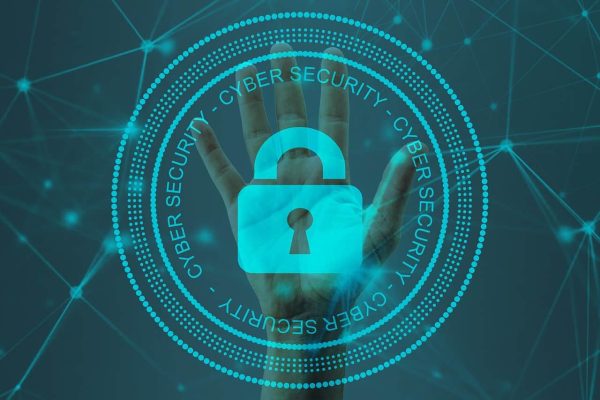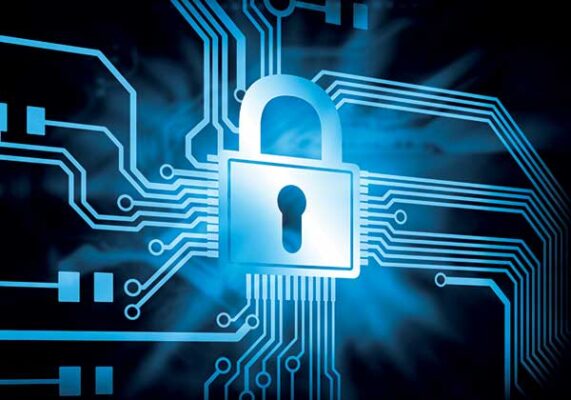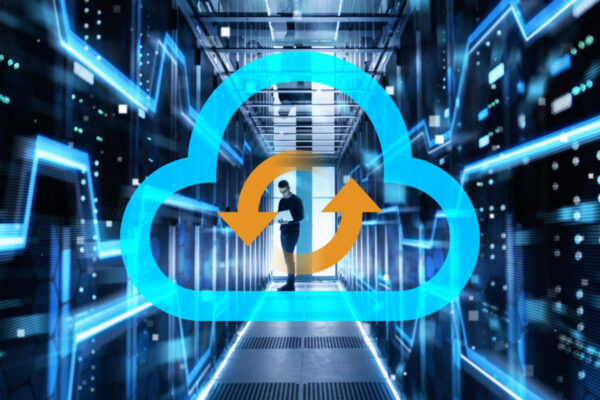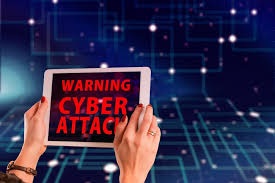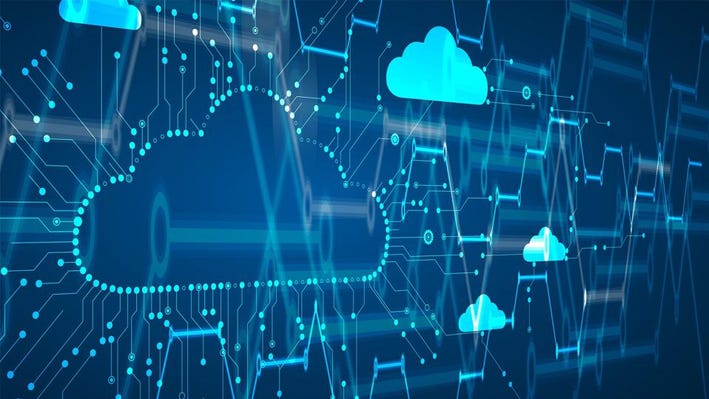Why Cyber Security Is Important
The modern internet is a vital part of every successful business with billions of dollars being transacted every minute by millions of users. Because of this, it has attracted the attention of society’s criminal element at cyber security, Northern Rivers we can help protect your website and your whole IT network whether you’re an individual or company with many users, Cyber criminals know that cyber crime is extremely profitable and has the advantage that they do not have to expose themselves to commit their crimes as they would in say robbing a bank or committing a home or shop burglary. Cybercrime is a very high profit, low risk industry for anyone with a low sense of right and wrong who wish to steal from others. Everyone who uses the internet is at risk of becoming a victim of the cyber criminal because: Vulnerability The internet is an extremely complicated set of computer codes that allows a multitude of computers to be joined together all across the world. Data and queries can be sent almost instantly anywhere with an instant answer. Unfortunately, the criminal element is also technically advanced and for every advance in cyber crime prevention, they soon come up with a way to get around so we all need to be constantly on guard and implement the new updates for all apps were using as they arrive Cybercriminals are after Cybercriminals are interested in all details such as personally identifiable information, health information, intellectual property, bank account information and credit card information. Some data obtained by cyber criminals may be used by them, but the majority is sold on the black market Simple firewalls and antivirus software are no longer adequate cyber security measures as cybercriminals are very sophisticated and very resourceful and no one can afford to ignore the dangers involved from scams like phishing, ransomware and other forms of malware designed to steal your data or extort money from you in a number of ways. • What is cyber security? Cybersecurity is the process used to protect computer systems, devices, networks and programs from a cyber attack or the process of recovery after a cyber attack. The internet is becoming more popular by the hour with many businesses and individuals no almost totally reliant on it for their livelihood, communication and social needs. Cyrber attacks are increasing rapidly with attackers now using social engineering and artificial intelligence much the same as Google search engines to crawl websites looking for weaknesses and ways to exploit what they find where ever they find it. • Third party danger Many websites with their own elaborate defence systems in place are often let down by third parties they deal with who have not been so vigilant in employing protective protocols, so have unbeknown to themselves, been hacked and pass this on to sites they join or link to • Why is cyber crime increasing? Because of the huge amount of information on the internet and cloud services it is very hard for authorities to detect and stop cybercrime or find the perpetrators as they can easily hide their identities making cyber crime very lucrative and relatively risk free Cyber security, Northern Rivers can help you protect your data and your whole network from the ever present threat of cyber attack which can come from many external sources or even from within your own network, you need to remain forever vigilant and have all systems independently backed up.
Read MoreThe Dark Web Explained
The ‘dark web’ is a section of the Internet that, unlike the surface web, is not accessible via standard search engines. • If users wish to visit the dark web, they must use specialised browsers, such as Tor or I2P, which enable anonymous communication through encryption. • Because of this focus on protecting users’ identities, the dark web has become a hotbed for crime and illegal material. For example, a 2016 study carried out by King’s College London found that over 55% of the material available on the dark web is considered illegal. • For those looking to buy & sell a wide range of illegal drugs and weapons, or for fraudsters out selling stolen accounts and hacking software, the dark web serves as an ideal marketplace. Users’ identities remain hidden and transactions (usually carried out in cryptocurrency) are incredibly difficult to trace. • Something to also be aware of is the difference between the dark web & the deep web, as the two terms are often confused. Whilst the deep web is also hidden from standard search engine results and protected by encryption, it is largely filled with sites used to store information (eg. people’s email accounts, company intranets & databases etc.). Want to know more about how you can secure your Business and Train your Staff click the following link to organise an appointment with Neil See Video below for more information… https://netlogyxit.com.au/wp-content/uploads/2024/08/The-Dark-Web.mp4
Read MoreHow password changing at frequent intervals helps in maintaining network security
Lorem ipsum dolor sit amet. Qui delectus excepturi eos labore autem ut Quis omnis eos iusto mollitia aut exercitationem cumque ut repellat maiores 33 voluptatem eius. Eos deleniti saepe aut nihil autem nam veniam atque. Aut sapiente consequatur aut dolor quod et accusamus tenetur! Eum molestias repudiandae ab nesciunt eveniet qui dolor libero id rerum similique est nisi nostrum et dolore provident. At molestiae facere sit corrupti harum et alias quae qui voluptatem tempore et laudantium suscipit. Ex quia voluptatem et neque nisi sit dolorem voluptas non nostrum cumque aut asperiores eaque in consequatur aperiam vel possimus iure. Ad cumque atque aut consequatur delectus et voluptas quae! Ea corrupti ratione est quis pariatur non mollitia molestias sed recusandae eligendi a dolores architecto est ipsam magnam.
Read MoreSome Common Types Of Cyber Threat And Ways To Avoid Them
Everyone has heard of cyberattacks, but many people are unaware of what they are and how to safeguard their websites from them. IT support agencies on the Gold Coast can help you with any of your cybersecurity issues. Cyber threats come in a variety of forms, some of which are: Phishing This old but often successful trick used by cyber criminals. It usually involves malicious emails sent to try and trick you into divulging information or downloading malware that’s designed to steal your data and personal information. Spear phishing is an email claiming to be from a trusted colleague, supplier or other trusted entity. They urge you to download a file that steals your personal data. Whaling is very similar, but the email seems to come from the company CEO or another senior figure asking you to change some payment details or make payments. The most effective way to combat these types of attacks is with staff training. Your local IT support agency on the Gold Coast is ideally suited to help you with this. Many of these types of cybercrimes are by non-English speakers and have spelling or other mistakes you can spot Man in the middle attacks This is where a third party breaches your security and places themselves between you and another party. Often this happens on public Wi-Fi systems. Scammers sit and wait for payment requests, then ask the payee to send to an alternative address. The best way to avoid this is to use a private, encrypted network and use a two factor identification system where you use a password. Any changes must be authenticated using a code sent on a separate system such as a cell phone message. SQLi or Structured Query Language attacks This is where an attacker inserts a malicious code into a server to force it to reveal selected data. This is surprisingly easy to do and can have severe consequences. Whitelisting is the best counter to this. You have a program that checks all user input against a list of permitted input characters and places limits on what can be searched by users. XSS or Cross-site Scripting XSS can be found on different web applications and their plug-ins. They allow attackers to impersonate users and take action on their behalf while gaining sensitive information. XSS can only be stopped by website developers and proactive regular penetration testings required regularly to find any weaknesses and fix it immediately. This is best done by IT services on the Gold Coast. Malware This is software of malicious intent; it can delete files, open the system for other users and spy on users. Spyware, Trojan horse and ransomware are some examples. Only open attachments you trust, don’t view suspicious websites and always have anti-virus software installed DoS or Denial of service This is where your attacker takes your service offline The best protection is placing your servers in the cloud and using firewalls Cyber security is a major concern for all internet users and the best way to be protected is by using an IT service to safeguard your system ant teach the correct preventative procedures to all people who have access to it. Human error is the main contributing factor to successful cyberattacks
Read MoreTop Tips To Prevent Data Loss In Your Company
All companies now use the internet for all manner of business transactions, so it is vital that the sensitive data they’re entrusted with is protected. IT professionals at Netlogyx are experts at developing the right solution for your individual security needs. Sensitive customer information needs to be readily accessible to selected employees, but as Cybercrime is on the increase, talk with professionals who provide IT Solutions on the Gold Coast, they can protect your company and minimise the risks of data leakage, which would be potentially devastating to your reputation and the entire operation. Some five basic steps every company needs to take to protect themselves TIDY UP YOUR DATA STORAGE Don’t have sensitive data on workstations around the office, on employee’s laptops or accessible by smartphone where it could easily be stolen. Keep your data in a secure central location to be accessed by employees with the necessary clearance over a remote private network. Introduce security steps to make it much harder and time-consuming for outsiders to gain access. The longer time involved will help alert your cybersecurity system to investigate, identify and if needed, contain or restrict these actions so any attack can be avoided or eliminated before any damage is done or data lost. LIMIT ACCESS TO DATA TO SITUATIONS THAT ARE ABSOLUTELY NECESSARY Ensure that only employees that need to, have access to sensitive data. Instigate a strict policy of bare minimal privilege where employees can only access the resources and data they need to efficiently carry out their job responsibilities CONDUCT REGULAR CYBERSECURITY AWARENESS TRAINING PROGRAMS Providing your employee’s with adequate cybersecurity awareness training allows them to recognise the latest phishing and cyber-attack strategies and resist these attempts. It also equips them with the skills to deal with a suspected security breach and what to do during an attempt. Basic training issues • Password Security tips • How to recognise social engineering attack strategies • Your company rules for using the internet while working • What to do in the event your smartphone, laptop or any other device is stolen or compromised • Implementing strict security measures and how this can affect customers, employee’s and the company ENSURE ALL DEVICES AND ENDPOINTS ARE COVERED WITH BASIC CYBERSECURITY All security programs need to be kept up to date and scans completed regularly. Ask the friendly guys providing IT Services on the Gold Coast to advise you on the best and most appropriate cybersecurity for your particular business. They can provide an antivirus that includes scanning for email and downloads for hidden attachments. REVOKE TERMINATING EMPLOYEES ACCESS IMMEDIATELY All business have staff turnovers, people move to new opportunities or leave for many reasons. At the end of employment, all employees are a potential risk to data security, whether they leave on friendly terms or not as there is less motivation for them to strictly adhere to your data security policies. Cybercrime is on the increase with millions of internet users and high traffic volumes to and from your business the potential for data abuse demands that you adopt the highest levels of protection to safeguard your business and your customers. A data security breach usually destroys a business, so be prepared.
Read MoreTop IT Security Problems For Businesses
With the hundreds and thousands of internet sites on the web, it is inevitable there will be an element trying to rip everyone off and steal people’s information. All companies from the smallest start-up companies to the huge multinational organisations need an effective cybersecurity strategy in place to protect themselves and every visitor to their site(s). Using Managed IT Services on the Gold Coast is one of your best bets to ensure you are protected at all times. The security threats from cybersecurity issues are becoming more sophisticated as the world becomes more digitised with more frequent and severe attracts to be expected. If you do not take steps to protect yourself then sooner or later you will become a victim. INCREASED AUTOMATION Internet marketing is rapidly growing and its positive effect has benefited both businesses and consumers, but with increased automation and connectivity, lighting speed and virtually instant responses that exchange vast amounts of information over multiple systems all businesses need to ensure they are not being exposed to risks of theft and extortion. Because of the sophisticated software unscrupulous operators could use against the average internet sites it’s critical you are able to track, block and control all information that enters or leaves your site. Many small operators will not be able to keep up with internet criminals as they do not have enough know-how or software. By using an IT Solution company on the Gold Coast you are placing a barrier between yourself and possible cyber attracts, protecting your finances and business information as well as your customer’s interests. This ensures your system is being continually-audited so you are safe from any issues or potential threats. The widespread deployment and installation of sensors and devices mean it could be relatively easy to take over control of organisations, without their permission or knowledge unless they take the necessary steps to prevent this. POINT OF SALES CAN BE VENERABLE Although the point of sales system is now very secure in many ways, they are no longer isolated systems and are continually being exposed to the internet. Even cloud-based solutions are venerable especially when people use mobile devices such as smartphones tablets and laptops while traveling. Up until now, many small businesses have been concentrating on systems that focus on convenience and customer-friendly features. These are very important, but cybersecurity consultation is now becoming equally important. This makes using Managed IT Services on the Gold Coast a very attractive and cost-effective alternative to trying to do it yourself or use in-house solutions. SOFTWARE ANTIVIRUS AND MALWARE SOLUTIONS ARE LOSING PUBLIC TRUST Downloadable software-based antimalware and antivirus systems are no longer an effective security system by themselves as it is possible that attackers are able to exploit these types of security apps directly to disrupt and steal from businesses as well as access private information. They can infect one system and then reproduce quickly to spread to all vulnerable systems very quickly. Any sized business can benefit from professional cybersecurity that your local IT Solution Company on the Gold Coast can provide while helping you with any of their other cost-effective solutions to ensure you are getting the best from your internet marketing business.
Read MoreRansomware – 7 Tips And Tricks
Ransomware is the fastest growing crime on the internet. Ransomware attacks increased by 4500% in 2014, and are showing no signs of stopping, they are just too profitable for the attackers. How can you stop the attacks? Here are seven things that will make a tremendous difference. • Don’t pay the ransom. Before you ask “But won’t you get your files back if you pay the ransom?” Just like a bully who tires of the keep-away game, you likely will get your files back if you pay. But you may not. If the attacker senses your desperation, you might get asked to pay again and again. • Don’t open attachments in email. There are a lot of different attackers running ransomware scams, using different ways to try and infect you. One of the most popular is using spam emails. The email will ask you to download or install something. Don’t do it, just don’t open anything. • Do keep software up to date. The bad guys know about weaknesses in the software on your PC before you do. And they use them to get on your computer. Patching removes the vulnerability. If you are given the option of updating your software then do it. • Do back up your files. People think nothing bad is ever going to happen to them until it does. Hopefully, you are never affected by ransomware. In the event it ever does, wouldn’t you like to have a copy of all your files somewhere safe? You can tell the attacker to rack off. Everyone knows they need to back up their files but never does it. Now you have one more very good reason to do it. • New ransomware variants are appearing all the time. Always keep your security software up to date for protection against attacks. • Treat any Microsoft Office email attachment that advises you to enable macros to view its content as suspicious. Unless you are 100% sure that it is a genuine email from a trusted source, don’t enable macros and immediately delete the email. • Using cloud services could help mitigate ransomware infection since most retain previous versions of files, which allows you to “roll back” to the unencrypted form. These ransomware attackers are preying on us. But implementing following a few simple dos and don’ts we can protect ourselves from them. And protect ourselves from other malware attackers.
Read MoreRansomware & Tips To Prevent It | IT Services Gold Coast | Netlogyx IT
The concept behind ransomware, the most widely used form of malicious software, is simple – Lock and encrypt the victim’s data, then demand a ransom to restore access. Often there is a time limit set to make payment or the data will be destroyed. Paying the ransom doesn’t guarantee restoration of your software either, it’s a catch 22. They can hold your personal files hostage, withholding your documents, photos, and financial information. Those files are still on your computer, but the encryption makes them completely unreadable. In 2017, the average ransom demand was $5221 — a high price to pay for getting your own property back. TYPES OF RANSOMWARE Ransomware types vary with some being more harmful than others, the common denominator being the ransom. The five types of ransomware are: • Crypto malware. This is a widely known form of ransomware and can cause a lot of damage. One example is the 2017 WannaCry ransomware attack, which targeted thousands of computers around the world and spread itself within corporate networks globally. • Lockers. This ransomware infects your operating system and completely locks you out of your computer, making access of any of your files or applications impossible. • Scareware. This is a fake software that appears to be an antivirus tool. Scareware often claims to have found issues on your computer then will demand money to fix the problem. Some types of scareware lock your computer, while others flood your screen with alerts and pop-up messages. • Doxware. Usually referred to as leakware, doxware threatens to publish your stolen information online if you fail to pay up. As many people have stored sensitive files and personal photos on their computers, it is not things you want leaked which is why so many will panic and fork out the ransom. RaaS. Also known as “Ransomware as a Service,” RaaS is malware that is hosted anonymously by a hacker. The hackers manage everything from distributing the ransomware and collecting the payments received to managing decryptors — which is software that restores data access WHAT TO DO AND WHAT NOT TO DO Ransomware is such a profitable market for cybercriminals and is unlikely to stop anytime soon. Prevention is the best defence in protecting your personal data. To stop cybercriminals and protect yourself from a ransomware attack, think about implementing the following dos and don’ts: • Use a security software. This will help protect your data. Make sure you choose a trusted security suite that does more than just antivirus protection. • Ensure your security software up to date. New ransomware is appearing all the time and ensuring your internet security software is current will help protect you against cyberattacks. • Regularly update your operating system and other software. Software updates include patches for newly discovered security black spots that left unprotected can be exploited by ransomware attackers. • Don’t ever automatically open email attachments. Email is one of the main ways cybercriminals deliver ransomware. Just don’t ever open emails and attachments from unfamiliar or untrusted sources. • Don’t open email attachments that request you to enable macros to view its content. Once it’s enabled, macro malware can infect multiple files. If you aren’t 100% sure the email is genuine, and from a trusted source, delete the email. • Back up important data to an external hard drive. Attackers gain leverage by encrypting valuable files and making them inaccessible to you. Having a back up of your important files takes away their power and will allow you to restore your files after the infection has been cleaned up. • Utilise cloud services. This can be immensely helpful in preventing a ransomware infection since many cloud services keep previous versions of files, which means you can “rollback” to the unencrypted form. • Don’t pay the ransom. Paying the money won’t guarantee your access being restored.
Read MoreThe Essential Eight – Strategies To Help Your Business Avoid Being A Victim Of Cyber Crime.
That are likely to pose the biggest threat to them. While no one strategy can guarantee to prevent cybersecurity incidents,organisations are recommended to implement eight main strategies as a framework. This framework (referred to as The Essential Eight), tightens overall security and makes system compromise more difficult. If your business decides to actively implement the Essential Eight it will ultimately be more cost-effective in regards to money, time and effort than if you have to respond to a larger scale security attack. Before starting to implement these strategies, organisations need to review the following: a. identify which systems require protection (i.e. which systems store, process or communicate sensitive information or other information with a high availability requirement) b. identify which adversaries are most likely to target their systems (e.g. cybercriminals, nation-states or malicious insiders) c. identify the level of protection your business requires (i.e. selecting mitigation strategies to implement based on the risks to business activities from specific cyber threats). There is a recommended order to implement for each cyber threat that will help your organisation build a strong cybersecurity network for your systems. Once organisations have begun implementing strategies, they need to focus energy on increasing the maturity of their implementation such that they eventually reach full alignment with the intent of each mitigation strategy in the following table. STRATEGIES TO PREVENT MALWARE ATTACKS Application whitelisting of approved/trusted programs to stop the execution of unapproved/malicious programs including .exe, DLL, scripts (e.g. Windows Script Host, PowerShell and HTA) and installers. Why: All non-approved applications (including malicious code) are prevented from executing. Patch applications e.g. Flash, web browsers, Microsoft Office, Java and PDF viewers. Patch/mitigate computers with ‘extreme risk’ vulnerabilities within 48 hours. Use the latest version of applications. Why: Security vulnerabilities in applications can be used to execute malicious code on systems. Configure Microsoft Office macro settings to block macros from the Internet, and only allow vetted macros either in ‘trusted locations’ with limited write access or digitally signed with a trusted certificate. Why: Microsoft Office macros can be used to deliver and execute malicious code on systems. User application hardening. Configure web browsers to block Flash (ideally uninstall it), ads and Java on the Internet. Disable unneeded features in Microsoft Office (e.g. OLE), web browsers and PDF viewers. Why: Flash, ads and Java are popular ways to deliver and execute malicious code on systems. MITIGATION STRATEGIES TO LIMIT THE EXTENT OF CYBERSECURITY INCIDENTS Restrict administrative privileges to operating systems and applications based on user duties. Regularly revalidate the need for privileges. Don’t use privileged accounts for reading email and web browsing. Why: Admin accounts are the ‘keys to the kingdom’. Adversaries use these accounts to gain full access to information and systems. Patch operating systems. Patch/mitigate computers (including network devices) with ‘extreme risk’ vulnerabilities within 48 hours. Use the latest operating system version. Don’t use unsupported versions. Why: Security vulnerabilities in operating systems can be used to further the compromise of systems. Multi-factor authentication including for VPNs, RDP, SSH and other remote access, and for all users when they perform a privileged action or access an important (sensitive/high-availability) data repository. Why: Stronger user authentication makes it harder for adversaries to access sensitive information and systems. MITIGATION STRATEGIES TO RECOVER DATA AND SYSTEM AVAILABILITY Daily backups of important new/changed data, software and configuration settings, stored disconnected, retained for at least three months. Test restoration initially, annually and when IT infrastructure changes. Why: To ensure information can be accessed again following a cybersecurity incident (e.g. after a successful ransomware incident). For more information on implementing these strategies within your business contact Netlogyx today.
Read MoreTop 10 Cyber Crime Facts You Need To Know In 2018
HERE ARE 10 OF THE MOST IMPORTANT THINGS YOU NEED TO KNOW WHEN IT COMES TO CYBERCRIME. • 2.51 was the average cost of a data breach in Australia in 2017. This was based on a study of 25 breaches by the Ponemon Institute. The breaches ranged from $0.89 Million for a breach of less than 10,000 records and up to 6.65 million for a breach up to 50,000 records with the average cost per record being $139. • 47,000 cyber-attacks were recorded by the Australian Cyber Security Centre in 2016-2017.More than half of these were malicious or fraud attacks affecting 7283 businesses and 734 notable private sector organisations. • Business losses from malicious emails doubled in the 2016-17 period with losses of more than 20 million dollars reported to the ACSC. • 90% of businesses have been exposed to a data breach or threat and 58% have been compromised at least once. • 24% of companies experience ransomware attacks each month taking an average of 5 hours to resolve not to mention the costs related to downtime. • Symantec report Australia is in the top 10 targeted countries for ransomware attacks which means you need to be extra vigilant about preventing and avoiding your business being targeted. • Cybercriminals are getting savvy – Phishing emails are evolving and becoming more sophisticated, intercepting and replicating invoices for existing services and payment arrangements. This can make it tricky for employees to pick up. • Cybersecurity jobs are tripling in response to the surge of attacks with an expected number of 3.5 million jobs in the field by 2021. All IT positions now require a certain level of security expertise. • New data breach laws were introduced to Australia in February this year in order to improve protection for personal and sensitive information and to create greater transparency. • It is predicted cybercrime will cost US $6 Trillion dollars worldwide by 2021, according to Cyber Security Ventures. This is based on the projected increase in organised cybercrime and foreign government activities. To find out more on how you can safeguard your business against cybercrime contact the team at Netlogyx.
Read More
